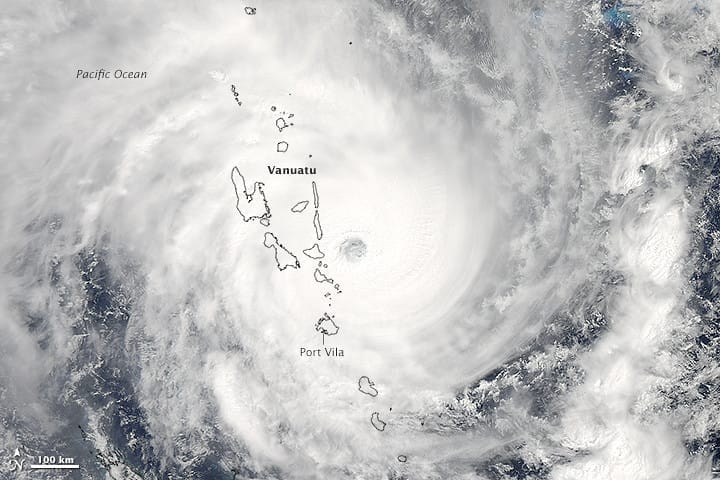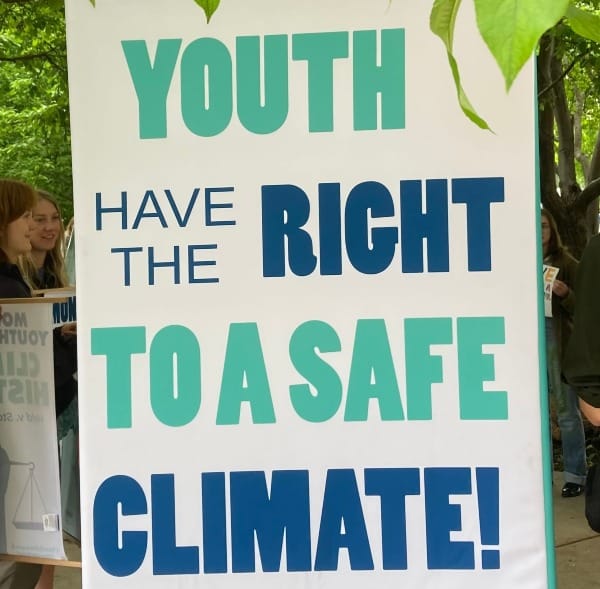“We Need Justice”: Vanuatu Set To Testify Before World Court Following Disappointing COP29 Outcome

Starting next week on December 2, the world’s highest court – the International Court of Justice (ICJ) – will hear the biggest case in its history in a highly anticipated climate justice proceeding. The case centers around the legal obligations of the world’s nations to protect the climate system and the consequences for breaching these obligations under international law. More than 100 oral statements are scheduled to be delivered during the two-week ICJ hearings from December 2 to December 13, which come on the heels of what many observers say is a deeply disappointing, even disastrous, COP29 UN climate summit in the petrostate of Azerbaijan.
“COP29 was a dumpster fire. Except it’s not trash that’s burning— it’s our planet,” Nikki Reisch, director of the climate and energy program at the Center for International Environmental Law, said in a statement. “Big polluters are to blame for this insulting outcome. For decades, they have diluted their legal obligations and blocked climate negotiations from tackling the climate crisis with the urgency, ambition, and equity needed.”
In clarifying the scope of states’ responsibilities under international law to act on the climate crisis, climate justice advocates hope the ICJ’s forthcoming advisory opinion could provide a much-needed breakthrough to strengthen the UN climate governance regime, which currently lacks a robust accountability mechanism.
“The limitations of the UNFCCC process motivate our case at the International Court of Justice,” said Ralph Regenvanu, Vanuatu’s special envoy for climate change and environment. Vanuatu has led the international initiative to request a climate change advisory opinion from the International Court of Justice, which is the judicial body of the UN.
“The ICJ Advisory Opinion has the potential to strengthen the Paris Agreement framework by clarifying the legal obligations of States under international law to act on climate change — obligations which have been disregarded for too long,” Regenvanu added. “This includes obligations to finance adaptation and mitigation in vulnerable countries and to address loss and damage. It could help close the glaring gaps in climate finance that COP29 once again left unresolved.”
While an ICJ advisory opinion in itself is not legally binding, international law experts say it is still considered persuasive authority and that the existing law it may clarify generally is binding. “Many of the obligations that the court will clarify are obligations that are binding on all states,” Margaretha Wewerinke-Singh, an international lawyer at Blue Ocean Law who is providing legal counsel to Vanuatu in the ICJ case, said during a November 7 media briefing. The advisory opinion could also potentially help boost climate accountability lawsuits brought against governments or polluting corporations. Regenvanu said he expects the opinion will provide a “precedent, a legal authority, that will help all cases.”
The two questions the court’s opinion will address are:
1) What are the obligations of States under international law to ensure the protection of the climate system and other parts of the environment from anthropogenic emissions of greenhouse gases for States and for present and future generations?
2) What are the legal consequences under these obligations for States where they, by their acts and omissions, have caused significant harm to the climate system and other parts of the environment, with respect to:
a) States, including, in particular, small island developing States, which due to their geographical circumstances and level of development, are injured or specially affected by or are particularly vulnerable to the adverse effects of climate change?
b) Peoples and individuals of the present and future generations affected by the adverse effects of climate change?
The advisory opinion could be issued sometime in 2025. Meanwhile, the oral hearings in December offer an opportunity for countries and international organizations to testify directly and to clarify or expand upon their written statements. The court received a record number 91 written statements, and 110 oral statements (98 from states and 12 from organizations) are scheduled – the highest number in any ICJ proceeding in its history. The full schedule, now public, is available here.
Vanuatu is set to testify first on the opening day, December 2.
“Just before the September United Nations General Assembly meeting in New York, Europe was hammered by unprecedented rain and flooding. Two months later, New York City was plagued by historic drought and brushfires. All throughout, large swathes of the Amazon rainforest burned hot enough to generate national emergencies. The inability of the Global North to make a dent in the climate crisis — much less derail it — is a global tragedy,” Regenvanu said in a statement.
“All of us on this planet are affected by climate change — regardless of your location, your belief in the science, or your motivation to reduce emissions,” he added. “We need justice and we need it urgently.”


